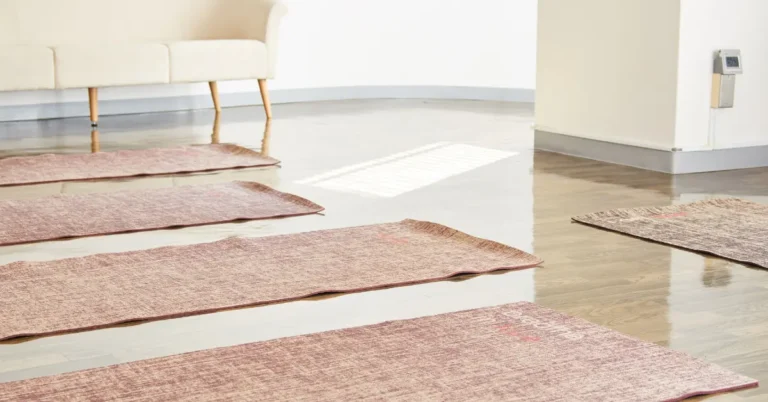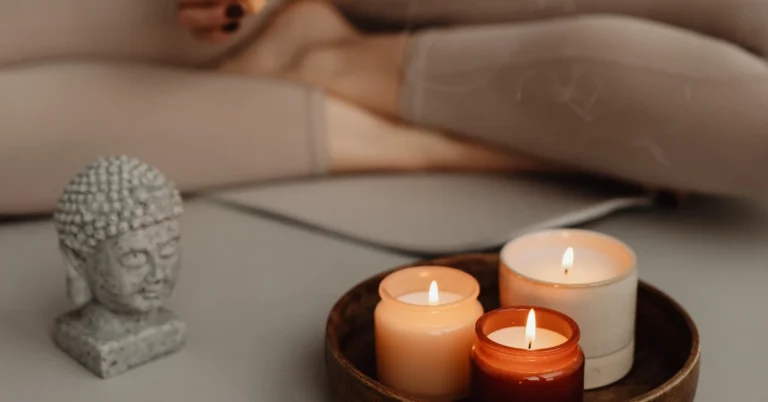Welcome to a journey of healing and strength. Discover the power of “Guided Meditation for Addiction Recovery” in transforming your life. In this blog, we’ll explore how meditation can support your path to recovery, offering peace and resilience every step of the way. Let’s begin this transformative journey together.
Benefits of Guided Meditation For Addiction Recovery
As someone who has struggled with addiction, I have found that guided meditation can be an incredibly helpful tool in the recovery process. Here are some of the benefits I have experienced:
1. Reduced Stress and Anxiety
One of the most significant benefits of guided meditation is its ability to reduce stress and anxiety. By focusing on your breath and the present moment, you can calm your mind and relax your body. This can be especially helpful during times of high stress or when you are experiencing intense cravings.
2. Increased Self-Awareness
Guided meditation can also help you become more self-aware. By paying attention to your thoughts and emotions during meditation, you can learn to identify triggers and patterns that may be contributing to your addiction. This increased self-awareness can help you make more informed decisions and avoid relapse.
3. Improved Emotional Regulation
Many people with addiction struggle with emotional regulation. Guided meditation can help you develop the skills needed to regulate your emotions more effectively. By learning to observe your emotions without judgment, you can begin to respond to them in a more constructive way.
4. Enhanced Mindfulness
Mindfulness is the practice of being fully present and engaged in the current moment. Guided meditation can help you develop this skill, which can be incredibly helpful in addiction recovery. By being mindful, you can learn to appreciate the small moments in life and find joy in the present moment rather than constantly seeking external sources of pleasure.
Types of Guided Meditation for Addiction Recovery

Guided meditation for addiction recovery is a form of meditation that involves a trained professional or audio recording guiding you through the meditation process. This can be especially helpful for beginners or those who struggle with maintaining focus during meditation. Here are a few types of guided meditation that have been particularly helpful for me in my addiction recovery journey.
Mindfulness Meditation
Mindfulness meditation is a type of meditation that involves focusing on the present moment and accepting it without judgment. During mindfulness meditation, you may focus on your breath, body sensations, or your surroundings. This type of meditation can be particularly helpful for those in addiction recovery as it can help you become more aware of your thoughts and emotions, which can help you identify triggers and cravings.
Visualization Techniques
Visualization techniques involve creating mental images of situations or places that you find relaxing. This type of meditation can be helpful for those in addiction recovery as it can help you create a mental escape from the stressors of everyday life. For example, you may visualize yourself on a beach or in a peaceful forest. This can help you relax and reduce stress, which can help prevent relapse.
Body Scan Meditation
Body scan meditation involves focusing on each part of your body, starting from your toes and working your way up to the top of your head. During this type of meditation, you may focus on the sensations in each part of your body, such as tension or relaxation. This type of meditation can be helpful for those in addiction recovery as it can help you become more aware of your body and any physical sensations that may be related to stress or cravings.
Step-by-Step Guided Meditation Session For Addiction Recovery

I am excited to share with you a step-by-step guided meditation for addiction recovery. This session is designed to help you relax, focus your thoughts on recovery, and cultivate a sense of inner peace.
Step 1: Find a Quiet and Comfortable Place
The first step is to find a quiet and comfortable place where you can sit or lie down without interruptions. You can use a cushion or a chair to sit on, or a yoga mat or a bed to lie down on. Make sure you are in a relaxed and comfortable position.
Step 2: Set an Intention
The second step is to set an intention for your meditation. This means that you decide what you want to focus on during the meditation. For example, you might want to focus on cultivating self-compassion, exploring the roots of your addiction, or simply relaxing and letting go.
Step 3: Focus on Your Breath
The third step is to focus on your breath. This means that you pay attention to your breath as it goes in and out of your body. You can count your breaths, or simply observe them. If your mind wanders, gently bring it back to your breath.
Step 4: Visualize Your Recovery
The fourth step is to visualize your recovery. This means that you imagine yourself as a happy, healthy, and sober person. You can visualize yourself doing the things you love, spending time with the people you care about, and enjoying life to the fullest.
Step 5: Express Gratitude
The fifth step is to express gratitude. This means that you take a moment to appreciate the good things in your life, such as your health, your family, your friends, and your sobriety. You can say a silent prayer, or simply say “thank you” to yourself.
I hope this step-by-step guided meditation for addiction recovery helps you on your journey to recovery. Remember to be patient and kind to yourself, and to take things one day at a time.
Incorporating Daily Guided Meditation For Addiction Recovery

Guided meditation in particular has been useful for me, as it provides structure and guidance for my practice.
One way to incorporate daily meditation into recovery is to set aside a specific time each day for your practice. This could be in the morning, before bed, or during a break in your day. It’s important to choose a time that works best for you and to stick to it as much as possible.
Another helpful tip is to find a quiet and comfortable space to meditate. This could be a specific room in your house, a park, or any place where you feel relaxed and at ease. Creating a designated space for your practice can help you get into the right mindset and make it easier to focus.
During your guided meditation practice, it’s important to stay present and focused on your breath and the guidance provided. You may find that your mind wanders, and that’s okay. Simply acknowledge the thought and gently bring your attention back to your breath.
Incorporating daily meditation into your recovery can help you manage cravings, reduce stress and anxiety, and cultivate a sense of calm and well-being. It’s important to remember that meditation is a practice, and that progress comes with consistency and dedication. With time and commitment, you may find that guided meditation becomes an integral part of your recovery journey.
Tracking Progress and Celebrating Milestones Of Guided Meditation For Addiction Recovery

One way to track progress is to keep a record of my daily, weekly, or monthly achievements. This could include staying sober for a certain number of days, attending support group meetings regularly, or completing a step in my recovery program. I can use a journal or a sobriety app to keep track of my progress.
Another way to track my progress is to set goals for myself. These goals could be short-term or long-term and should be realistic and achievable. For example, I could set a goal to complete a certain number of meetings in a week or to complete a step in my recovery program by a certain date. By setting goals, I give myself direction and motivation to continue on my path to sobriety.
When reaching a milestone, it’s important to celebrate it. Celebrating milestones helps acknowledge your hard work and progress and reinforces commitment to sobriety. You can celebrate milestones in many ways, such as treating yourself to a nice meal or activity, sharing achievement with support groups, or simply taking a moment to reflect on your progress.
FAQ
What is Guided Meditation for Addiction Recovery, and how can it support my recovery journey?
Guided Meditation for Addiction Recovery is a mindfulness practice led by an instructor or meditation script designed to help individuals in their recovery from addiction. It supports the recovery journey by promoting relaxation, reducing stress, enhancing emotional regulation, and fostering a positive mindset, all of which are crucial for overcoming addiction.
Can Guided Meditation for Addiction Recovery be used alongside traditional treatment methods?
Yes, Guided Meditation for Addiction Recovery can complement traditional treatment methods such as counseling, therapy, and support groups. It serves as an additional tool to help manage cravings, reduce anxiety, and build resilience, making the overall recovery process more holistic and effective.
What techniques are typically included in Guided Meditation for Addiction Recovery, and how do they assist in recovery?
Techniques in Guided Meditation for Addiction Recovery often include breath awareness, body scanning, visualization, and affirmations. These techniques help individuals focus on the present moment, manage stress, cultivate self-awareness, and reinforce positive thoughts and behaviors, all of which are beneficial in maintaining sobriety and preventing relapse.
How often should one practice Guided Meditation for Addiction Recovery, and what long-term benefits can be expected from consistent practice?
The frequency of practicing Guided Meditation for Addiction Recovery can vary based on individual needs, but regular practice—daily or several times a week—can yield significant benefits. Consistent practice can lead to reduced stress, improved emotional balance, enhanced self-control, and a stronger sense of inner peace and resilience, all of which support long-term recovery from addiction.
If you liked this blog article about guided meditation for addiction recovery, don’t forget to follow us on Pinterest so you don’t miss any more meditation news!





